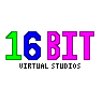Your first distribution
What was the first ever distro you installed and used? For me, it was Mint as I seemed like the closest thing to Windows minus all the forced updates and chappy changes.
Currently on Fedora GNOME now but what about you? What made you choose your first distro diving into the world of Linux?
I wanna hear your thoughts!











Add comment